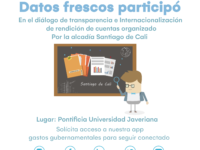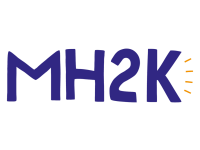The European Citizens’ Consultations (ECCs) were a project aiming to engage citizens in a consultation about what Europe meant to them. It was formed of two strands; an online survey about the future of Europe, and a series of national consultation events organised by national governments and other organisations like NGOs, think tanks, and academic institutions. This was a new experiment to give European citizens the possibility to express and exchange their opinions about the Union and its…
Innovation Tag Opengov: co-creation
A new waste management system, driven by information. Bogota has evolved its cleaning and recycling scheme, generating a profound transformation in the way in which citizens needs are met and garbage collection is managed. This model is based on the effective use of data and information. This initiative has allowed greater transparency in the actions of involved public and private organizations, an intense collaboration to provide the best service and enabling citizens active participation.
The Artech project invites artists, entrepreneurs, and developers to use public data as a "raw material" for works of art based on traditional arts or digital media. Being a well-known and respectable medium to broad audiences, we see art, as an original and fresh way to expose new audiences to the importance of open data and its relevance. This is the first time that a government agency in Israel has directly sponsored a creative and innovative experience of this kind.
Conçus et impulsés par Etalab, Datactivist et Vraiment Vraiment dans le cadre de la démarche de gouvernement ouvert en France, le forum « Open d’État » est une rencontre entre agents publics impliqués dans des projets d’innovation, et des acteurs de la société civile (acteurs privés, associations, ONG…) lors de forums ouverts sur des projets spécifiques autour de la donnée. Ces Forums permettent d'expliquer les projets et de recueillir les demandes des citoyens.
2018 was the year of reflection on the future of Europe. In order to understand the hopes and fears of citizens of Latvia regarding the future of European Union, more than 1500 citizens have been engaged in consultations that took place both in the regions of Latvia and online. Consultations were co-organized by state institutions and civil society organisations using various experimental formats.
Education in Open Government is a project whose main objective is to foster social and civic competences for the exercise of one's democratic citizenship in children and young people. It involves three phases:
1) Teachers' training via a massive online open course (MOOC).
2) Implementation of educational projects in schools: for this purpose, 3 guides of Education in Open Government have been published: Primary Education, Secondary Education and High School.
3) Evaluation of the experiences.
Case Study
Ensuring Impartiality through Identity-Neutrality Provisions: the Case of Freedom of Information in…
The Internet has facilitated online services for citizens, but it has also facilitated Internet searches of service-seeking citizens by public officials, triggering conscious or unconscious bias. Via freedom of information (FOI) requests, academics provided evidence of this phenomenon at work. Brazil's Comptroller General (CGU) responded by implementing a check-box in its online FOI requesting system so that requesters could choose to remain anonymous. This innovation is a first for FOI regimes.
Our innovation is a platform that takes data from different open data government sources, and proposes a way to use analysis, visualization, models, predictions for citizens, thereby linking data literacy processes with innovation.
Budget Monitor is a ICT tool of SAOG that promotes transparency,accountability,efficiency of public administration through increased citizen scrutiny. BM establishes two way communication with taxpayers:
1.provides sophisticated budgetary information by easy-to-interpret visualizations and dynamic graphs for free and
2.enables citizens to get involved in audit process by informing SAOG about deficiencies in public spending,providing recommendations and contribute to improved public service…
Mental health issues affect about 1 in 10 young people in the UK. MH:2K gives young people a leadership role in solving this most important of challenges. It empowers 14-25 years old to identify the mental health issues they see as most important, engage their peers in exploring these topics, and work with decision-makers to make recommendations for change.





